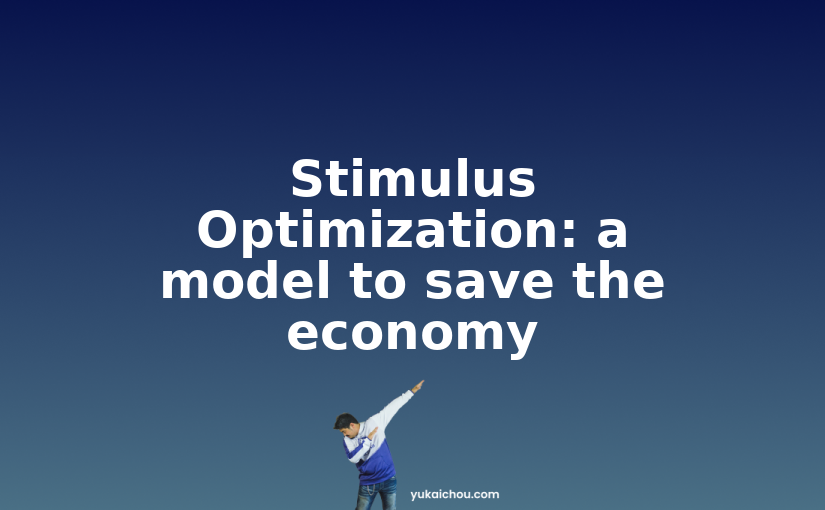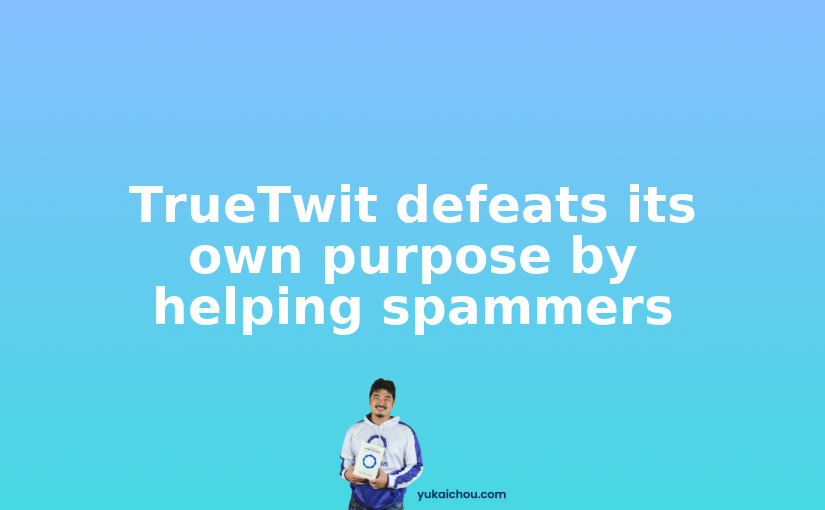Lifestyle Gamification Coaching: helping you master the Game of Life

Lifestyle Gamification Coaching: Life Coaching for highly motivated and ambitious individuals Lifestyle Gamification Coaching. That’s basically teaching people how to become powerful in whatever fields they are in and things they care about. It is similar to the common Life Coaching, but more geared towards ambitious individuals who does not just want to live a […]
Yu-kai Chou of 2010

Today is the first day of a new decade. Yes, some argue that 2011 should be the beginning of the new decade, but I don’t care. At least my bank uses the format 1990-1999 and 2000-2009 to determine one period. Perhaps if I failed on my goals this year, next year I will say “NOW […]
The Free Customized Magic Mirror that Everyone Has

We have huge blindspots Most of us want to become better at what we do or become a better person in general. The problem is that we have too many blindspots for ourselves to really find out what we really need to work on. When something goes wrong, we can think of a hundred external […]
A leadership lesson I learned from basketball

You cannot lead effectively if you worry about yourself This week I was playing a game of full-court basketball with my father. Unlike my Co-founder Jun Loayza, I am not good at basketball because I never really trained in the basics of dribbling, manuevering, and strategies. As a result, everytime I am point guard, I […]
Stimulus Optimization: a model to save the economy

Here’s another article that I personally think is pretty insightful, but long and boring so no one will actually read (and of course it could be obvious or foolish instead). I’ll do my best to keep it short and digest-friendly though. I do feel this topic is VERY important since the economy is going to be entirely restructured in the next two years, and how it is done is extremely important.
To start, the US government is said to be $65.5 Trillion in debt. For perspective, this is more than the world GDP for one entire year and four times the US GDP for one year. In other words, the US Government literally owes the world to other nations.
Right now the federal government is behaving like its US citizens who borrow from tomorrow to solve today’s problems. The US borrows money from other countries to help the irresponsible people and companies clean up the mess they made and hope to “one day” be able to pay it back. As you know, when the people couldn’t pay back their debts, they go bankrupt, and the banks die along with them. If the US keeps getting more debt without promise of making MORE money back, it will end up bankrupted too. The other countries will then end up like failed banks and die too.
Now I’m not a doomsday person, and I like to stick to positive and actionable steps, but I do want to emphasize that in this environment EVERY dollar must be spent to its maximum efficiency. I guess we could call it Stimulus Optimization.
What the government should do
I’m going to give you what I believe is the best strategy for Stimulus Optimization, and then layout the logic that got me to this point.
1. Money should stay circulated in old lower income males, small businesses (but not large corporations), social enterprises and non-profits.
2. Money should be put into industry-creating technologies, but not just for technology development but also the commercialization of the technology. The government should support tons of startup people but pay them just enough for them to survive.
3. Money should be put into essentials of society like Education, Healthcare and Tech Infrastructure.
Some of this may seem unintuitive, or possibly biased/humanitarian, but I do believe that this is most economically efficient. Let me explain why.
TrueTwit defeats its own purpose by helping spammers

TrueTwit helps you figure out who are the spammers and who are the real people Lately I’ve come across this Twitter App service called TrueTwit. This is a service that is meant to identify who are the real people who are following you, and who are the spammers. It works pretty simple: 1. Someone follows […]
Yu-kai Chou’s Presentation: Building Your Brand with Your Company Blog

View more presentations from Yu-kai Chou. Yu-kai Chou’s Presentation: Building Your Brand with Your Company Blog Here are the slides for my presentation on Building Your Brand with Your Company Blog Hummingbird604 made some excellent live notes on his blog. Definitely check it out!
